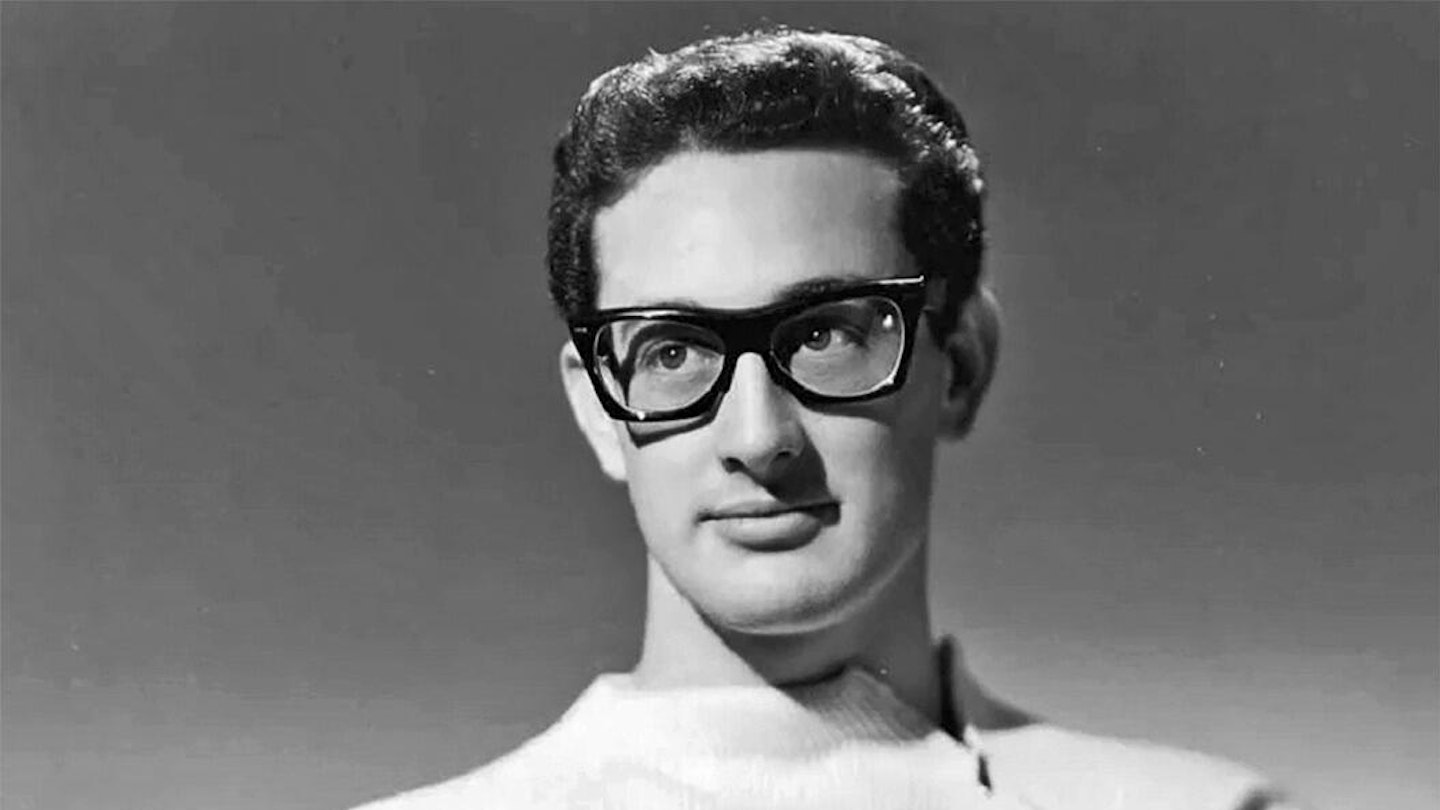22 September 1957
IT WAS A RECORD MOST LABELS SCORNED, and few believed in. But, somehow, That’ll Be The Day by The Crickets made it to the top of the US charts on September 22, 1957, and the whole world stopped to listen.
How did they get here? Sometime in early summer 1956, Buddy Holly, together with guitarist Sonny Curtis and drummer Jerry Allison had wandered down Texas Avenue in his Lubbock hometown, and opted to cool-out at the air-conditioned State Theatre. The John Wayne movie The Searchers was on, starring the Duke as Ethan Edwards, a Civil War veteran scouring the West Texas wilderness for his abducted niece. The character’s catchphrase was “That’ll be the day”, and Holly, together with old pal Allison – they’d played as a duo at a roller rink during ’55 – picked up on it as a good idea for a song.
“The worst song I’ve ever heard.”
Owen Bradley, original producer
On July 22, 1956, Buddy, Jerry and bassist Don Guess, who’d been operating under the name Buddy And The Two-Tones, headed for Bradley’s Barn in Nashville to record their second session for Decca. Producer Owen Bradley declared That’ll Be The Day, “The worst song I’ve ever heard.” “We were trying too hard,” claimed Allison, while Ellis Amburn’s Buddy Holly: A Biography noted, “Decca, intent on getting a country song, urged Buddy to sing so high, which was out of Buddy’s range.” It was reported that the only person at Bradley’s Barn who liked the recording – a slower, looser, murkier take than its later incarnation – was the janitor. Decca made clear that they had no intention of releasing it.
In January 1957, Holly’s contract with Decca expired and he expressed interest in Roulette, having been impressed by the label’s Norman Petty-produced hit Party Doll by Buddy Knox. And so, on February 25, Holly and Allison made the trip to Petty’s studio in New Mexico to cut another version of That’ll Be The Day – a crisper and neater version, with hygienic backing vocals.
Roulette’s Morris Levy heard the tape and passed. As did Columbia, RCA and Atlantic. Finally, Bob Thiele at Coral/Brunswick, ironically a Decca subsidiary, heard the demo and signed Holly. Not that his Decca superiors approved. According to Thiele, they let it be known that they thought it “junk” and “a joke”, but finally gave their approval. The song would be released on Brunswick, the group renamed simply The Crickets.
That’ll Be The Day finally made it out of the traps on May 27, 1957. A review in Billboard two weeks later tersely assessed: “Fine vocal by group on a well-made side that should get play. Tune is a medium beat rockabilly. Performance is better than material.” The following week, Brunswick placed an ad in the paper announcing the label’s latest releases, though Let’s Get Acquainted, an album by Lawrence Welk Show regulars The Lennon Sisters, seemed higher on their list of priorities. Holly was reported to be in despair at the lack of action.
The Beatles' First Recording
Happily, DJs in Buffalo and Philadelphia played The Crickets’ single until ears burned. Thiele recalled that, as soon as the record became available in Philadelphia, 16,000 copies were snapped up. By the time Buddy celebrated his 21st birthday, on September 7, 1957, the song was a major hit and on its way to becoming a rock anthem across the world. In 1958, for example, it was the first song to be recorded by Mersey skifflers The Quarrymen, soon to evolve into The Beatles. As for that first recording, Decca belatedly released it, credited to Buddy Holly And The Three Tunes, but it failed to chart.
The song had proved industry movers to be completely out of touch. But how did Buddy Holly feel about creating a classic? In an October 1957 interview with Canadian broadcaster Red Robinson, he opined, “I like Oh, Boy! better than That’ll Be The Day.”
After Buddy’s tragic death alongside Ritchie Valens and The Big Bopper in a plane crash 16 months later, The Crickets went on. Sonny Curtis, who later wrote I Fought The Law and other celebrated songs, had already returned to play guitar with Allison, who later married Peggy Sue Gerron, inspiration for one of Buddy’s other huge hits. Over the following decades, The Crickets had success in their own right, played with admirers including Paul McCartney, Keith Richards and Eric Clapton, and kept on gigging. Their final show was on February 6, 2016, at the Surf Ballroom in Clear Lake, Iowa – where Buddy had played his last show, back in ’59.
